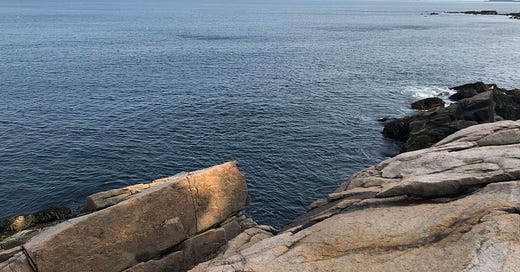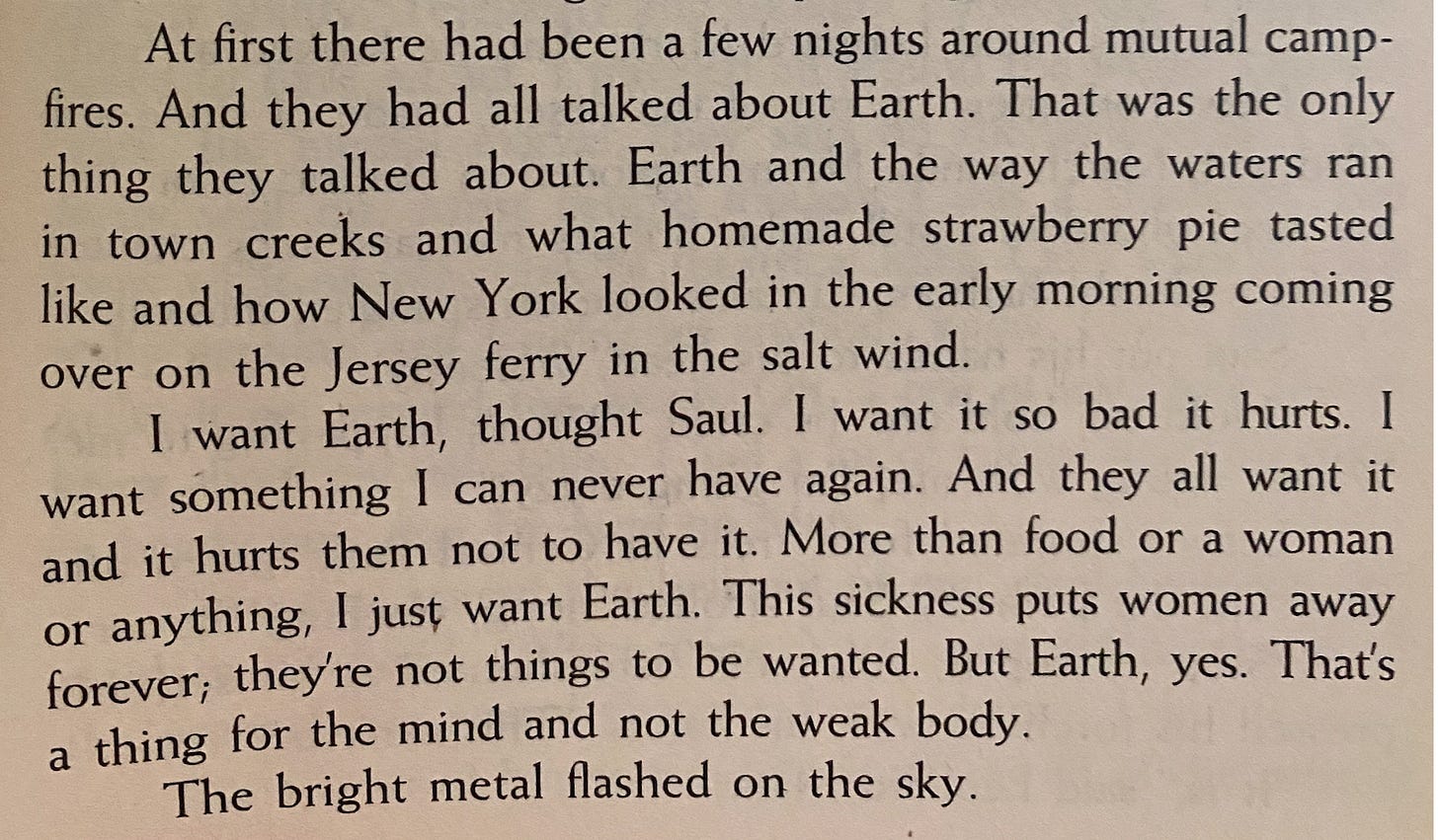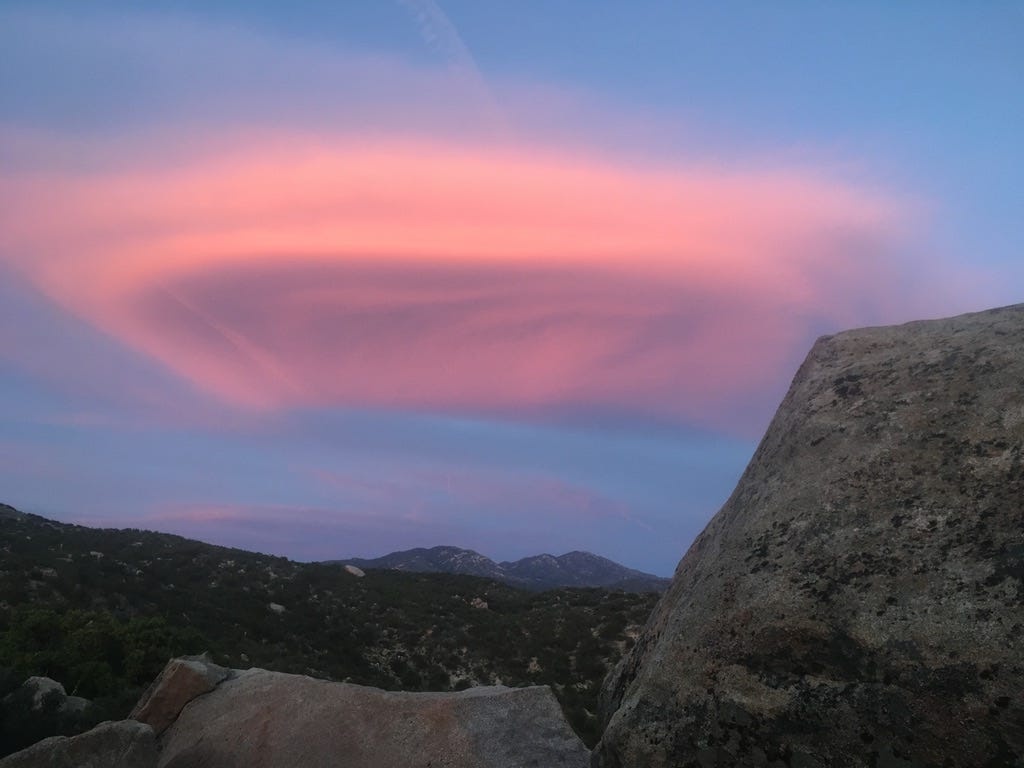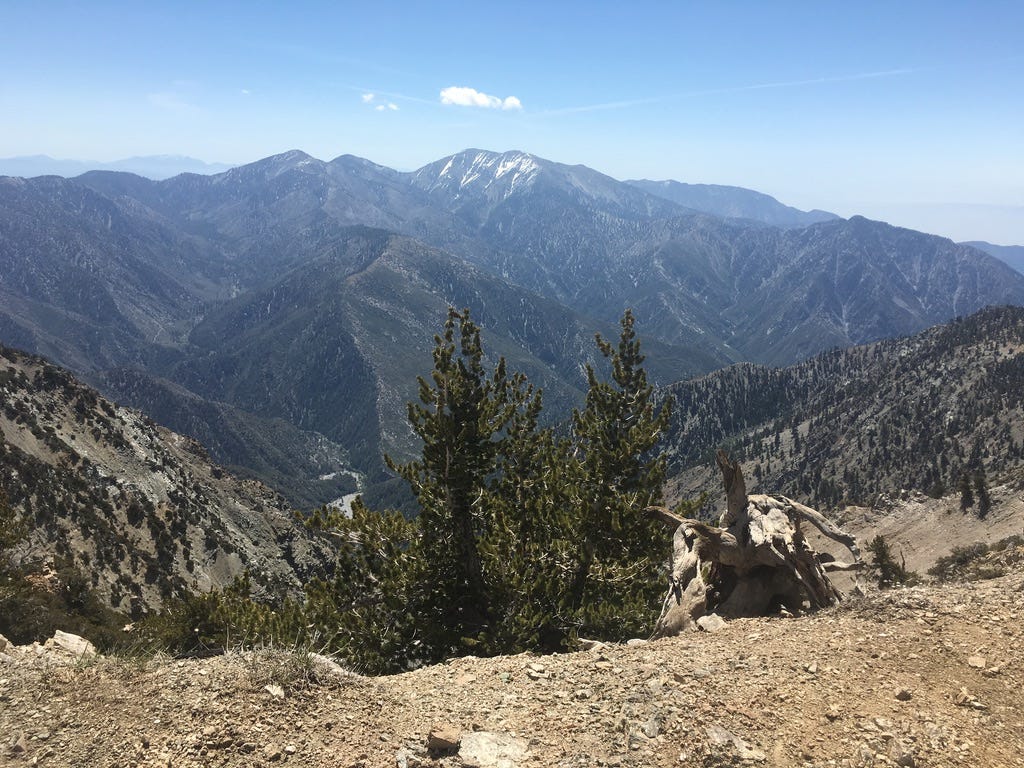I Hope I Never Recover From This
It's like trying to snip a swirling eddy from the river it appears in
In April of 2020, with the world and my own life in a state of confused limbo, I had very little to do except read. I would sit out in the sun of our tiny concrete back “porch” in a rocking chair and plow through book after book, pausing only to check my phone to find out what new horrors had been revealed in the past hour.
One of those books was Ray Bradbury’s The Illustrated Man, a loosely-connected collection of short science fiction stories. I’m not particularly into sci-fi but it was something to read. And from the jump it became clear that this was science fiction of a different kind: one that viewed the onset of miraculous technologies, intergalactic frontiers, and digital personhood with a keen sense of dread, rather than wonder. At the core of these stories was the nagging sense that we already had what we needed to build fulfilling lives and communities here on Earth and squandered it all in the relentless pursuit of more.
In one story, “The Visitor,” Mars is used by humans as a leper colony of sorts. Those stranded there, unsurprisingly, do not see their new residence as the stuff of miracles. Instead they can only feel the deep-soul existential ache that comes from being robbed of one’s own planet.
Space travel is a key component of the American mythos. Our investment in these fabulous projects of exploration, and the resulting defeat of the dastardly Soviets in the race to the moon, has remained a source of national pride despite the end of the shuttle program decades ago. We are a nation of explorers, of conquerors, of people who have dreamed big and done bigger, and if along the way we must be confronted with the truth of who had to be killed and subjugated and enslaved as the wild frontier was tamed and our borders expanded, well, at least we have our pride.
Still…the age of space exploration is something more romantic, isn’t it? No one to subjugate or exploit, just a vast and wondrous infinity to strive for and into? It would be nice to think so. But the field of space exploration and colonization—from the Nazi roots of NASA1 to the massive government subsidization of Elon Musk’s various companies—has never been separate from the same processes of resource extraction and rigid socioeconomic stratification that have made America what it is since its first day as a nation.
There are no living people on Mars that would be victimized by our colonizing it, but the project is still a deeply anti-social and oppressive one, the fundamental logic of which is based on massive resource extraction and obscene profit-making. If we can colonize Mars, then there is no need to save Earth, to build a more humane and just society, to cease from pillaging every good and green thing available in the name of bumping up third quarter profits.
This reckless and wanton destruction of the planet would be worth fighting on its own terms even if such a project—the transplantation of the human race onto another one—were possible. But to even believe it might be possible is to fundamentally misunderstand what it is to be human, which is to say, less a separate and special species and more a tiny offshoot of the ecological functioning of a much larger body. We are of Earth and we are inextricable from it.
The writer Caitlin Johnstone expressed this beautifully, in a series of tweets I think about almost every day:
The only reason anyone even believes it's possible to colonize space is because cognitive and perceptual biases cause us to assume that the human organism is separate from its ecosystem. It is not. The biosphere is one inseparably unified happening of which humans are part.
[It] isn't made up of separate “things” any more than a tornado or hurricane is. An organism is just a process, a happening, that is in nonstop interplay with the rest of the ecosystem on every level due to its need to eat, breathe, drink etc.
We're interconnected with this planet in so very, very many ways, many of which we probably don't even know about since we've never actually tried to live independently from it. Brief visits to space have been nothing more than glorified scuba excursions fully dependent on Earth.
But because we're conditioned to think in terms of a separation that doesn't actually exist in real life, we think we're these separate things that could just ship off into the stars. Really it's like thinking you can snip a swirling eddy out of the river it appears in.
I am no biologist or philosopher but this feels much truer than anything Elon Musk could tell me about why we need to abandon this green place for an uncertain red one. Even if he were right it would all be out of my reach, as I am not capital-R Rich. So I was pleasantly surprised recently reading the account of a guy who is Rich (and notoriously conservative and crusty) and went into outer space with Jeff Bezos: Captain Kirk himself, William Shatner.
Everything I had thought was wrong. Everything I had expected to see was wrong. I had thought that going into space would be the ultimate catharsis of that connection I had been looking for between all living things – that being up there would be the next beautiful step to understanding the harmony of the universe.
…I hope I never recover from this. I’m so filled with emotion about what just happened. It’s extraordinary, extraordinary…I discovered that the beauty isn’t out there, it’s down here, with all of us. Leaving that behind made my connection to our tiny planet even more profound.
It was among the strongest feelings of grief I have ever encountered. The contrast between the vicious coldness of space and the warm nurturing of Earth below filled me with overwhelming sadness.
…My trip to space was supposed to be a celebration; instead, it felt like a funeral.
I don’t yearn to visit other planets because there is so much to see and enjoy on this one that I will never get around to a fraction of it. Nor will just about anyone who doesn’t have infinite resources at their disposal. And of the fraction I have seen, or will see, well—I like it all quite a bit, and would like to spend time deepening my knowledge and appreciation of it. Do they have alpenglow on other planets? Well, maybe. But do they have the specific alpenglow of Mount Shuksan at sunrise, from a windy spot nestled among the boulders with your best friends, snugged in your sleeping bag as the morning freezes the tip of your nose? Do other planets have redwoods or sequoias, or Macchu Picchu, or the vault of stars overhead as you cross the open Pacific in a little skiff that shows you how small you really are? Do other planets contain my friends, my family? Do other planets love me the way this one does? I would like to experience those things again, to walk and sail beneath and across this planet for as long as I can. I don’t need to have an affair with somewhere else. I want to fall in love with this planet anew every morning. I want Earth so bad it hurts.
My friend Marianela once wrote: “Thank God I am so small.” I am not sure there is a better animating prayer with which to greet the day than that one.
Thanks, as always, for reading. I’ll talk to you next week.
-Chuck
PS - If you liked what you read here, why not subscribe and get this newsletter delivered to your inbox each week? It’s free and always will be, although there is a voluntary paid subscription option if you’d like to support Tabs Open that way.
Is this a lame gotcha that I’m only including because I love conspiracies and hate America, or is this just the most visible piece of evidence that the assimilation of Nazi leadership into American government 70 years ago has influenced public life and politics to this day, like some kind of weird fascist mushroom?








Loved this piece. Really well done and it is one of my favorites since I started reading.
Loved this piece. Nicely written, well played.